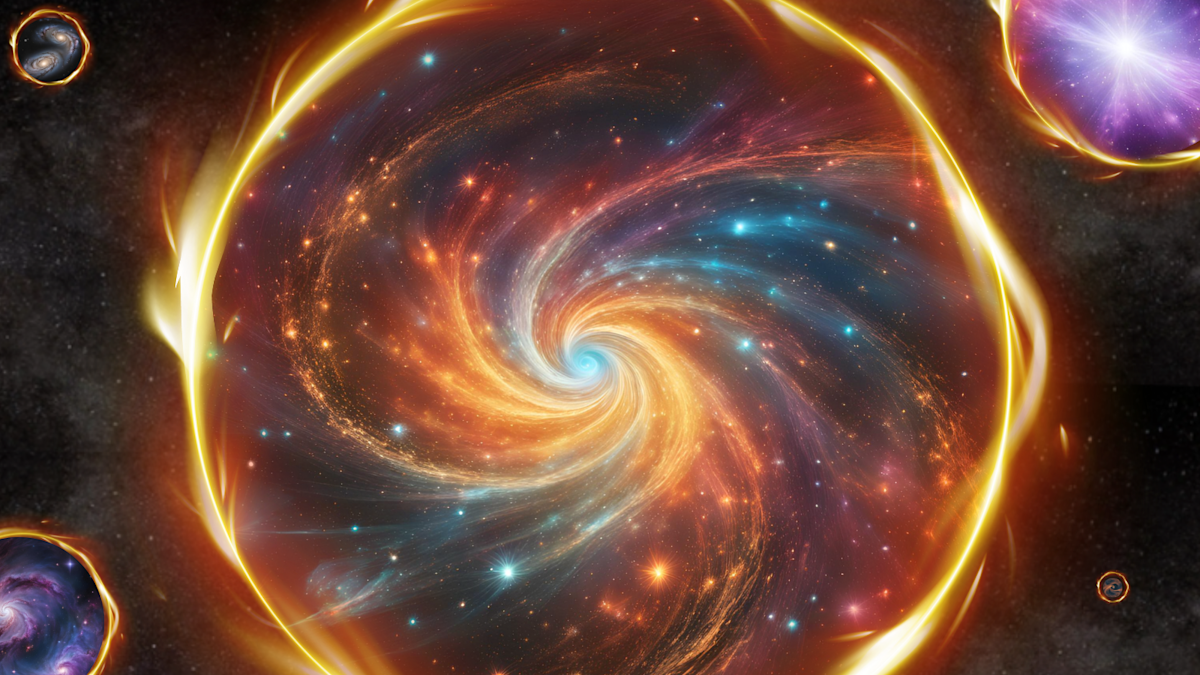Spinning Universe May Unlock Dark Energy and Multiverse Secrets

NEW HAVEN, CT – A rotating universe may hold the key to unraveling the mysteries of dark energy and our place in the multiverse, according to groundbreaking theories from a renowned physicist.
The universe’s potential rotation could significantly impact some of the most profound questions in cosmology, such as the nature of dark energy and the existence of a multiverse. This theory is championed by Nikodem Poplawski, a Polish theoretical physicist at the University of New Haven, who suggests that black holes might serve as portals to other universes.
Immediate Impact
Poplawski’s hypothesis gains traction with recent findings from the James Webb Space Telescope (JWST), which revealed that two-thirds of observed galaxies rotate in the same direction, indicating a possible cosmic spin. The implications of this discovery are profound, potentially offering a new perspective on dark energy, which currently accounts for 68% of the universe’s energy content.
Dark energy is a placeholder name for the force causing the universe to expand at an accelerating rate.
Key Details Emerge
The JWST’s observations suggest a lack of randomness in cosmic rotation, hinting at a preferred direction. Poplawski notes that the angle between the axes of spinning galaxies and nearby galaxy clusters is nearly perpendicular, supporting the rotating universe hypothesis.
In Poplawski’s view, a rotating universe implies the existence of multiple universes, each with its own “frame of reference.” This perspective is rooted in black hole cosmology, which posits that black holes create new “baby” universes beyond their event horizons.
By the Numbers
- 68%: Dark energy’s share of the universe’s energy content
- 98 degrees: Angle between galaxy rotation and cluster axes
- 2/3: Proportion of galaxies rotating in the same direction
Expert Analysis
Poplawski’s theory suggests that every black hole could be a gateway to another universe, with the rotational axis of the black hole influencing the spin of the new universe. He explains, “The universe born in a rotating black hole inherits the axis of rotation of the black hole as its preferred axis.”
This concept aligns with black hole cosmology, where spacetime torsion replaces the singularity, leading to repulsive gravity that initiates a new universe’s expansion.
Background Context
Dark energy’s enigmatic nature has puzzled scientists since its discovery. Initially, the universe’s expansion was thought to slow after the Big Bang, but observations revealed an accelerating expansion, attributed to dark energy. Recent data from the Dark Energy Spectroscopic Instrument (DESI) suggests this force is weakening, challenging the standard cosmological model.
Future Implications
Poplawski proposes that the universe’s rotation could account for dark energy’s behavior. “Dark energy would emerge from the centrifugal force in the rotating universe on large scales,” he explains. As the universe expands, its angular momentum decreases, potentially explaining the observed weakening of dark energy.
Further research is needed to validate these ideas. More data on galaxy cluster flow and rotation asymmetry could confirm the universe’s rotation. Additionally, understanding how dark energy varies with cosmic distances and time could shed light on its true nature.
“The next step is to determine how the cosmological constant, generated by the universe’s angular velocity, decreases over time,” Poplawski concludes.
A pre-peer-reviewed version of Poplawski’s research is available on arXiv, offering a fresh perspective on the universe’s rotational dynamics and their implications for dark energy and the multiverse.






